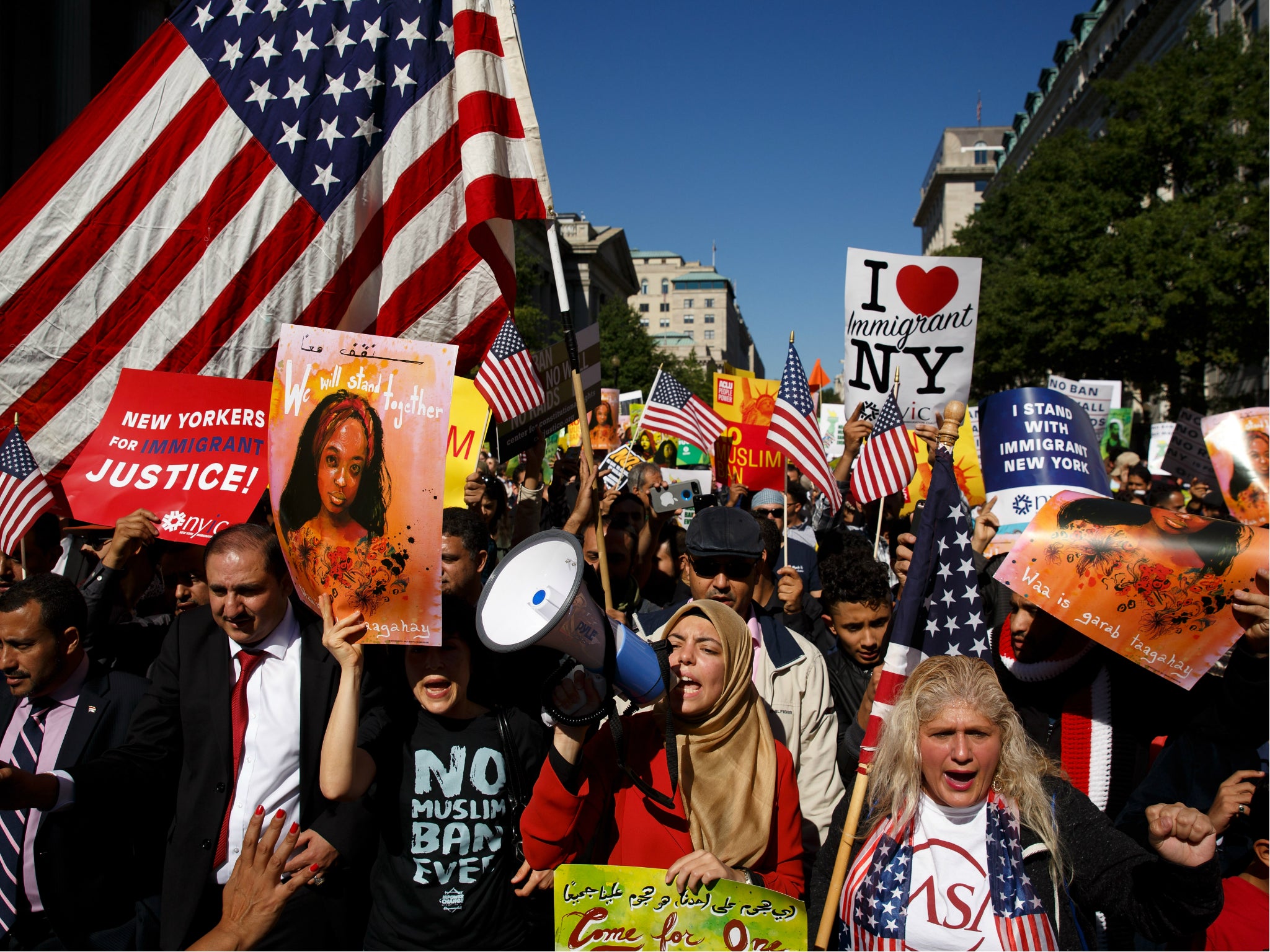Trump removes Chad from US travel ban on Muslim-majority countries, Venezuela and North Korea
Chad's inclusion on the list in the first place continues to baffle experts

US President Donald Trump has removed Chad from the travel ban on six Muslim-majority countries, Venezuela, and North Korea.
Seven months after it was added the African nation, which is a key counterterrorism ally for the US in the region, does not face travel restrictions for its citizens to come to the US. Foreign Minister Cherif Mahamat Zene tweeted that he was “pleased” with the US decision which centred around passport samples not being able to be provided to US Homeland Security due to an office supply shortage.
The administration said the reason for the Sahel region country’s inclusion in the first place was because Chad failed to “adequately share public-safety and terrorism-related information”. White House press secretary Sarah Huckabee Sanders said the reversal was decided because the US felt Chad had “improved its identity-management and information sharing practices” enough to warrant a removal from the list.
However, Chad’s inclusion in the first place was a mystery to many experts. “One explanation for why the Trump administration added Chad is incompetence,” Geoff Porter, President of North Africa Risk Consulting, previously told The Independent.
“What does that mean? Chad is desperately poor. ... It has a tough army but limited bureaucratic capacity,” John Campbell, a former US ambassador to Nigeria, told BuzzFeed News. Chad played, and continues to play, a cooperative and key role in the fight against extremist groups like Isis-West Africa, al-Qaeda, and Boko Haram.
Some experts had said the same “bureaucracy” and ‘paperwork’ problem could be said for several developing nations and even some wealthier nations bogged down with procedures or shifting political leadership. The country had also provided the only continental force in the Trans-Saharan Counterterrorism Partnership, which is funded by the US, as well as providing troops to the UN Peacekeeping force in nearby Mali. Mr Porter explained the country’s military force has been “instrumental in combating al Qaeda affiliated groups in neighbouring countries like Niger and Nigeria” as well.
The government said it was “astonished” and “baffled” by the Trump administration’s decision last year and said it “severely tarnishes the image of Chad, and the strong relationship between the two countries, particularly in the fight against terrorism.”
Chad also plays a key role in stabilisation efforts in an often volatile region it shares with Sudan, which was on Mr Trump’s last travel ban but removed from this version. The Sudanese government is still considered a state sponsor of terrorism and accused of carrying out a genocide in the Darfur region by the US State Departmen.
The agency’s Trafficking in Persons report issued earlier this year also listed the Sudanese government as a country that “does not fully meet the minimum standards for the elimination of trafficking and is not making significant efforts to do so,” particularly in terms of the use of child soldiers.
Mr Porter pointed out that Chadian President Idriss Déby’s son even graduated from the United States Military Academy at West Point in 2015, indicating even greater ties between the two countries.
The US military not only has a base in the country but held a 20-nation exercise with US Africa Command to fight extremists in 2017. The US Army, Navy, and Marines have also trained Chadian forces and the State Department spent $300m (£22m) on a new embassy in the capital city of N'Djamena.
The new version of the indefinite travel ban went beyond the 90-day restriction in earlier forms that created mayhem and thousands of protesters at nearly every airport in the US shortly after Mr Trump took office in January 2017. Libya is also under consideration for removal from the list that still includes Venezuela, North Korea, Syria, Iran, Somalia, Iraq, Sudan, and Yemen.
Join our commenting forum
Join thought-provoking conversations, follow other Independent readers and see their replies
Comments
Bookmark popover
Removed from bookmarks